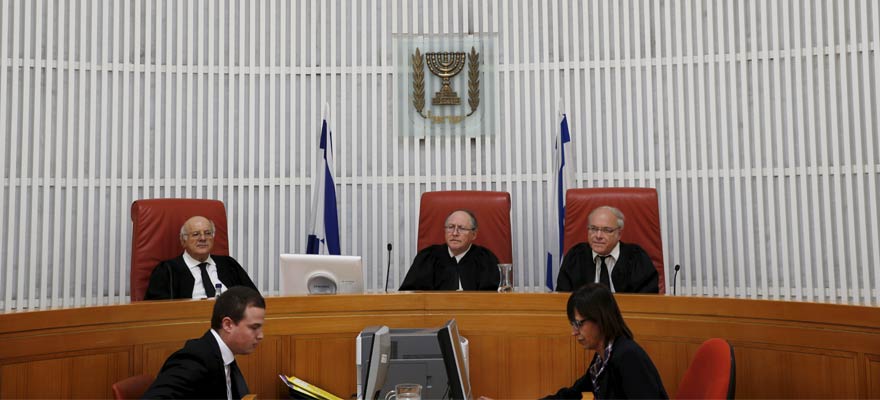The Blockchain and cryptocurrency industry has demonstrated massive growth in the past one or two years. The legal framework of the industry, however, naturally, is still behind. However, advisors and lawyers which provide the legal framework to such ICOs or cryptocurrency projects are starting to gain up on all technological and business developments.
This can easily be seen by looking at the way we conduct pre-sale participation these days in comparison to the way this was done just a year ago.
In the early days of the crypto industry, the legal framework of all cryptocurrency transactions, as well as pre-sale stages of most initial coin offerings, began with a document named the Simple Agreement for Future Tokens (SAFT).
SAFT is a form of legal agreement that was published by Cooley LLP, one of the prime law firms in the world in terms of Venture Capital and legal services to the high-tech and startups industry.
The main advantages of the SAFT were (seemingly) clear - it was an easy-to-read document, simple enough to rely on, and allowed the avoidance of paying large amounts in legal fees due to its simplicity.
Above all, it was supposed to be a security, but, according to the document's authors, the underlying tokens were supposed to be deemed as consumptive products and not as securities.
“The SAFT is a security," the SAFT Project Whitepaper reads. "It demands compliance with the securities laws. The resulting tokens, however, are already functional, and need not be securities under the Howey test. They are consumptive products and, as such, demand compliance with state and federal consumer protection laws.”
Too ambitious
At later stages, we discovered that the above approach did not prove to go well with the SEC (the securities regulator of the United States) which was not overly impressed. The SEC started to investigate quite a few companies that relied on the SAFT to avoid scrutiny.
It was eventually discovered that the SAFT was too ambitious. The law firm who had initiated the SAFT project started to accompany it with an offering memorandum that was incorporated by reference, (i.e., included the content of the offering memorandum in the agreement by way of mentioning it) and made it seven times its original size.
As the crypto industry matured, the issues and disadvantages of the SAFT became more and more apparent, and law firms began to come up with their own forms. Some drew up forms that are similar to a private placement memorandum (a legal document provided to prospective investors that intend to purchase shares).
Some came up with a form that looks like a token adjusted version of an advanced investment agreement (a document very similar to the SAFT). Some came up with a form that was merely an adjustment to a share purchase agreement, which is commonly used by venture capital firms, and others came up with a form of agreement that is actually an order form for tokens to emphasize the fact it is to be deemed as a product or service rather than a security.
Cryptocurrency transactions are very different than what legal and business professionals previously experienced in “traditional” high tech and corporate practices. It is becoming clear, however, that detailed crypto-oriented legal documents are of the essence and that the legal community is currently undergoing a process of maturity in the sense of realizing the important requirements and the basis for each well-written crypto transaction document.
This includes the applicable exchange rates, the relevant risk factors, the token generation procedures, all acknowledgments of risks and various representations and warranties especially in connection with accreditation and compliance with anti-money-laundering legislation.
Evolution of the industry
These days, we see more and more companies that avoid the usage of the SAFT in their coin or Token offerings’ presale stages and use legal documents that provide better certainty, higher protection, and a better reflection of the transactions performed for all parties involved. This results in longer negotiation processes and higher costs during the presale phase, but it usually leads to a better ‘bigger picture.’
The innovation and constant development entailed in the cryptocurrency industry also lead to positive changes in the way legal and business professionals provide services. For example, now it is possible to automatically enforce vesting and/or lockup provisions and arrangements in connection with cryptocurrency assets.
Another example is the avoidance of paying agent services and/or shareholder representative services, which are usually used by companies that sell shares to a high number of purchasers for the purpose of raising capital. For crypto transactions, such services are simply replaced by the Smart Contract itself (when applicable).
Companies were not the only ones to evolve in this sense. Investors, specifically high net worth individuals and funds, have also evolved and are starting to negotiate certain legal terms that are commonly used in the venture capital industry.
While writing this article, I have been negotiating a ‘most favorable terms’ clause (meaning, a clause that provides for a matching of its beneficiary to the best terms offered within the company’s offering, i.e., the presale) for a high net worth client that is investing in a presale of an ICO.
Until now, such a clause was non-existing and would hardly be considered at the early times of the cryptocurrency industry. Nowadays, however, it is becoming more and more common for large-scale investments of high net worth individuals and funds.
To sum up, these days, the industry’s technological innovation and business developments are forcing professionals to think on their feet, evolve quickly, and provide an up-to-date service.
Legal and business professionals must keep themselves informed and up-to-date with the current practices at all times, and companies and investors that are provided with the services should make sure that their service providers are experienced enough and up-to-date in this constantly evolving practice.
Adv. Gil Solomon is a Partner at Solomon Tzur.

















